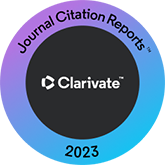Ridiculing the Learned: Jokes about the Scholarly Class in Mediaeval Arabic Literature
DOI:
https://doi.org/10.3989/alqantara.2004.v25.i1.149Abstract
Sarcastic stories and comments against the representatives of various intellectual professions is a highly conspicuous phenomenon in the high Abbasid and Buwayhid periods. While the experts of Classical Arabic grammar appear to have been special targets of such jesting in the literature of those times, we also find lots of texts in which other "serious" disciplines and their specialists (like the study of hadīth and Islamic jurisprudence, etc.) are singled out for ridicule. Examining the sources of irony in these anecdotes, jokes and poems, the article seeks to identify the common element of the texts in question in the fact that the jesting is almost always directed against the pedantry and solemnity of the scholars, whereas gaiety, common sense and frivolity are portrayed as attractive alternatives. All this might be interpreted in the context of the huge social changes taking place under the Abbasids: it is reasonable to suppose that simply the new, highly civilized, urbanized and frivolous literary culture is reflected in these texts, which, no longer content to mimic earlier, more solemn models of Speech, lifestyle and culture, sought to manifest itself much more freely in literature as well as other spheres of cultural activity. These transformations, however, seem to have been limited to the educated élite, and one probably should not interpret our texts as the voice of the common people in literature.
Downloads
Downloads
Published
How to Cite
Issue
Section
License
Copyright (c) 2004 Consejo Superior de Investigaciones Científicas (CSIC)

This work is licensed under a Creative Commons Attribution 4.0 International License.
© CSIC. Manuscripts published in both the print and online versions of this journal are the property of the Consejo Superior de Investigaciones Científicas, and quoting this source is a requirement for any partial or full reproduction.
All contents of this electronic edition, except where otherwise noted, are distributed under a Creative Commons Attribution 4.0 International (CC BY 4.0) licence. You may read the basic information and the legal text of the licence. The indication of the CC BY 4.0 licence must be expressly stated in this way when necessary.
Self-archiving in repositories, personal webpages or similar, of any version other than the final version of the work produced by the publisher, is not allowed.














